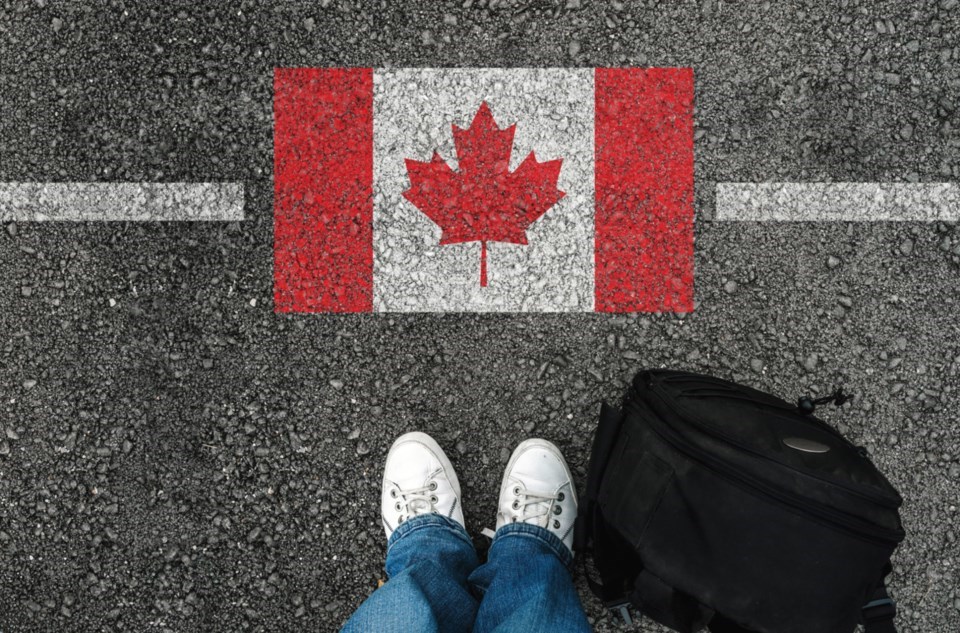Newcomers in North Bay are getting nervous about the coming expiry date of the Rural and Northern Immigration Pilot (RNIP).
The federal government’s official position, as of today, is that program intake ends in February, 2024, with permanent resident applications being accepted until August 2024.
However, if you read the tea leaves, that is not going to happen. The odds of RNIP transitioning from a pilot program to a permanent immigration stream are very high. Why?
- RNIP was largely based on the successful Atlantic Immigration Pilot, which became a permanent program.
- Prime Minister Justin Trudeau’s mandate letter for Minister of Immigration, Refugees and Citizenship Sean Fraser stated, in part: “Ensure that immigration better supports small and medium-size communities that require additional immigrants to enhance their economic growth and social vibrancy. This will include expanding the Rural and Northern Immigration Pilot, moving forward the Municipal Nominee Program, and making the successful Atlantic Immigration Pilot a permanent program.”
- The minister himself said in Timmins, “The Rural and Northern Immigration Pilot has been an enormous success. We haven’t made formally a decision to make the program permanent yet, not because we don’t like the program, but because the first few years of the program’s existence happened under very challenging circumstances during the COVID-19 pandemic.”
- He also said, “My hope is that we will have a permanent program designed for rural and northern communities. I expect it will look something like the one that is currently in place,” according to a CTV News account of his visit to Timmins.
Politically, it would be a dumb move to end the program, given that 11 communities across Canada, including North Bay, benefit from it. The screams of protest would be loud from employers and the local organizations responsible for coordinating RNIP.
Locally, Donna Backer, CEO of the North Bay & District Chamber of Commerce, the lead agency for RNIP, is optimistic.
In an email, she told me, “We are hoping that the pilot will become permanent and continue, as we feel it’s beneficial for our communities and businesses in our area. There is an informal yet concerted effort from all RNIPs to advocate for a permanent program and we look forward to working with IRCC in helping them develop a great program (what works, what needs improvement, etc.).
“We will continue to send that message of program permanency to IRCC and reach out to the municipalities and businesses that fall within our boundary (Burk’s Falls to Temagami, and West Nipissing to Mattawa) in the coming months to lend support to the request for a solid and permanent RNIP program.”
All the information you need about RNIP is here.
In a news release in February, she noted that in 2022, some 143 applicants received letters of recommendation from the Chamber, which made them eligible to apply for permanent residence. At that time, she said 80 applicants, many with families, “have received their permanent residence, are working, living and contributing to the local economy.”
In Sudbury, another RNIP community, Meredith Armstrong, Greater Sudbury’s director of economic development, was quoted by CBC Radio saying she believes RNIP will become permanent, thanks to a high number of approvals in 2022.
In Timmins, another RNIP community, 148 letters of recommendation were issued last year, and Mayor Michelle Boileau was quoted by CBC Radio as saying, “I’ve heard first-hand from employers that had it not been for RNIP they might not have been able to stay open into the next year. So, it is having a very positive impact on our business community.”
The remaining two RNIP communities in Northern Ontario are Sault Ste. Marie and Thunder Bay. The five Northern Ontario cities are some of the largest of the 11 in the program. The only communities in the population vicinity are Brandon, Man., with a population of 51,300; Moose Jaw, Sask., with a population of 33,900; and Vernon, B.C. with a population of 40,100.
The remaining communities are Altona/Rhineland, Man., Claresholm, Alt., and West Kootenay (Trail, Castlegar, Rossland, Nelson), B.C.
There would be howls of protests from all 11 communities if RNIP were to end next year. Politicians don’t like howls of protest.
So, what do we tell newcomers anxiously hoping that they can gather all the immigration documentation before the deadline?
As I heard Bobby McFerrin singing on the radio the other morning, “Don’t worry. Be happy.”
Don Curry is a Regulated Canadian Immigration Consultant living in North Bay and a member of BayToday’s community advisory committee.




